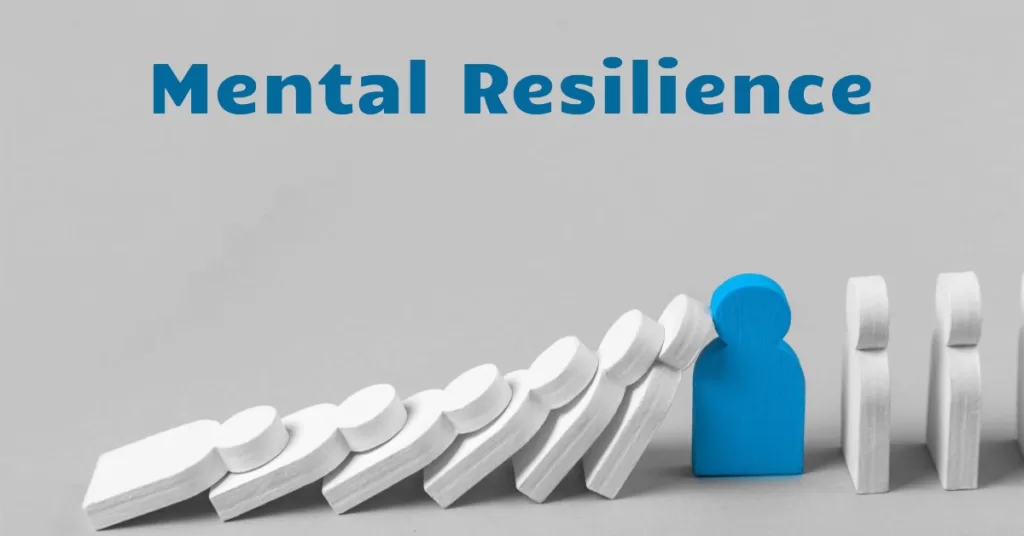High-performance traits are essential for individuals who seek personal and professional growth. Self-discovery and self-reflection are two critical components of high-performance behavior that can help individuals achieve their goals, overcome obstacles, and improve their overall performance. Through self-discovery, individuals can identify their unique strengths, weaknesses, values, and goals. On the other hand, self-reflection enables individuals to evaluate their actions and experiences objectively to identify patterns and learn from mistakes.
The importance of self-discovery and self-reflection cannot be overstated in today’s fast-paced world where success is often measured by one’s ability to accomplish tasks quickly without much thought given to personal growth or development. By cultivating high-performance traits regularly, individuals can gain a deeper understanding of themselves and their surroundings. This article will provide an in-depth exploration of the role that self-discovery and self-reflection play in achieving a high-performance mentality. It will also offer practical tips on how to implement these traits into daily routines for maximum benefit.
Table of Contents
- 1 Key Takeaways
- 2 Understanding the Importance of Self-Discovery and Self-Reflection
- 3 Self-Discovery: Identifying Your Strengths, Weaknesses, Values, and Goals
- 4 Self-Reflection: Evaluating Your Actions and Experiences
- 5 Identifying Patterns and Learning from Mistakes
- 6 Making Adjustments to Improve Your Performance
- 7 Implementing Self-Discovery and Self-Reflection in Your Daily Routine
- 8 The Role of Support Systems
- 9 The Power of Self-Discovery and Self-Reflection in Achieving High-Performance
- 10 Conclusion
Key Takeaways
- Self-discovery and self-reflection are essential for personal growth and development.
- Building a network of accountability with like-minded individuals can enhance motivation, facilitate progress tracking, and promote goal attainment.
- Seeking feedback and guidance from trusted individuals can provide valuable insights into areas of improvement.
- High-performing individuals seek feedback regularly and have higher levels of self-awareness, emotional intelligence, and resilience.
Understanding the Importance of Self-Discovery and Self-Reflection
The recognition of the significance of self-discovery and self-reflection in cultivating high-performance traits is widely acknowledged in academic literature. This understanding provides individuals with a deeper insight into their values, beliefs, and motivations, which enhances their ability to navigate challenges and achieve personal and professional goals.
Self-discovery refers to the process of gaining knowledge about oneself through introspection or observation. It involves examining one’s thoughts, emotions, behaviors, strengths, weaknesses, interests, and values. Self-reflection is the act of thinking deeply about one’s experiences to gain new insights or perspectives. Both these processes provide an opportunity for individuals to understand themselves better.
By engaging in self-discovery and self-reflection regularly, individuals can identify areas where they need improvement or growth. They can also recognize patterns in their behavior that may be hindering their progress toward achieving their goals. This awareness enables them to make necessary changes in their actions or attitudes that will help them become more productive and successful.
Self-discovery and self-reflection are critical components of cultivating high-performance traits as they enable individuals to develop a deeper understanding of themselves. With this knowledge comes increased awareness of what motivates them personally and professionally; this awareness helps them remain focused on achieving their goals despite challenges along the way. By embracing these practices wholeheartedly with consistency over time- remarkable results can be seen!
Self-Discovery: Identifying Your Strengths, Weaknesses, Values, and Goals

Assessment tools and techniques are essential in identifying one’s strengths, weaknesses, values, and goals. Self-awareness is crucial in achieving personal growth and development. The benefits of self-awareness include improved decision-making skills, better communication with others, and increased emotional intelligence. By utilizing assessment tools and techniques to identify areas for improvement, individuals can work toward becoming their best selves and achieving their goals.
Assessment Tools and Techniques
Various evaluation methods and procedures are available to help individuals determine their strengths and areas for improvement in high-performance traits. One of the most commonly used assessment tools is the Myers-Briggs Type Indicator (MBTI), which identifies an individual’s personality type based on four dichotomies: extraversion/introversion, sensing/intuition, thinking/feeling, and judging/perceiving. This tool provides insights into an individual’s communication style, decision-making preferences, work habits, and interpersonal relationships. Other popular assessments include the StrengthsFinder 2.0, which helps identify an individual’s top five strengths from a list of 34 possible talents; the DISC assessment that categorizes individuals as Dominant (D), Influential (I), Steady (S), or Conscientious (C); and emotional intelligence assessments that measure an individual’s ability to recognize emotions in themselves and others.
Assessment tools can be valuable resources for individuals who want to improve their high-performance traits by providing them with a better understanding of their strengths and weaknesses. These evaluations can help identify areas that require development or further refinement, allowing people to focus on improving specific aspects of themselves. Moreover, these assessments not only provide insight into one’s personal qualities but also serve as a foundation for creating goals that are tailored toward self-improvement. By using these tools effectively, individuals can harness their unique strengths while working on overcoming weaknesses to achieve success in both personal and professional endeavors.
The Benefits of Self-Awareness
Self-awareness is a cognitive process that involves introspection and understanding of one’s thoughts, emotions, and behaviors. It allows individuals to recognize their strengths and limitations in various aspects of life, including personal relationships, career development, and overall wellbeing. Moreover, self-awareness enables individuals to identify areas for improvement and take steps toward personal growth.
The benefits of self-awareness are numerous. Firstly, it enhances emotional intelligence by allowing individuals to manage their emotions effectively. By being aware of their own emotional triggers and reactions, individuals can respond more thoughtfully to challenging situations. Secondly, self-awareness improves communication skills by enabling individuals to express themselves clearly while also recognizing the needs and perspectives of others. Finally, it also promotes better decision-making by providing clarity on personal values and priorities. Overall, cultivating self-awareness is crucial for achieving success in all areas of life as it helps individuals realize their full potential.
Self-Reflection: Evaluating Your Actions and Experiences
Reflection on one’s actions and experiences is an effective way to gain insight into personal growth and development. Self-reflection involves taking a step back from our daily routines and analyzing our thoughts, feelings, and behaviors. It allows us to identify patterns in our behavior that may be hindering our progress toward achieving our goals. By reflecting on past experiences, we can learn from mistakes, celebrate successes, and make informed decisions about future actions.
To effectively reflect on one’s actions and experiences, it is important to have a structured approach. One such approach is the use of a reflective table or matrix. This tool helps individuals organize their thoughts by breaking down an experience into its component parts: what happened, how they felt about it, what they learned from it, how they could improve next time, and any other relevant information. By filling out this table regularly after significant events or interactions with others, individuals can track their progress over time.
Self-reflection also requires honesty with oneself. It can be difficult to admit when we have made mistakes or behaved in ways that do not align with our values. However, acknowledging these shortcomings is essential for personal growth. Reflecting on negative experiences can help us identify areas where we need to improve and develop strategies for doing so.
Self-reflection is a powerful tool for personal development and growth. By taking the time to analyze our thoughts, feelings, and behaviors through structured reflection exercises like tables or matrices; being honest with ourselves about areas where we need improvement; celebrating successes; learning from mistakes; making informed decisions about future actions – we can become more self-aware individuals who are better equipped to achieve our goals in life.
Identifying Patterns and Learning from Mistakes
By examining past experiences and identifying patterns in behavior, individuals can gain insight into their personal development. Learning from mistakes is crucial in the process of self-discovery, as it allows individuals to evaluate their actions and make informed decisions about future actions. Identifying patterns can help individuals understand how they respond to certain situations and what triggers certain behaviors. It also enables them to recognize negative thought patterns or habits that may be hindering their personal growth.
Acknowledging mistakes is not easy, but it is necessary for self-improvement. By analyzing our past experiences, we can identify the causes of our failures and learn from them. Understanding why a particular situation did not go as planned enables us to evaluate our approach and make changes accordingly. This introspection helps us avoid repeating the same mistakes in the future.
In addition to learning from mistakes, identifying patterns also allows us to recognize positive aspects of ourselves that we may have overlooked otherwise. By recognizing our strengths and areas of improvement, we can set goals that align with our personal values and work toward achieving them. This level of self-awareness leads to a fulfilling life where every action is purposeful.
To conclude, identifying patterns in behavior through self-reflection is an essential step toward self-empowerment. Through this process, individuals learn from their experiences – both good and bad – allowing them to make informed decisions about future actions based on what has worked well for them in the past while avoiding previous pitfalls. Developing a deeper understanding of oneself creates opportunities for continued growth by building on strengths while addressing weaknesses along the way.
Making Adjustments to Improve Your Performance
To optimize one’s abilities and achieve success, it is essential to make necessary adjustments in behavior and actions based on past experiences. Making adjustments is an ongoing process that requires self-reflection, self-awareness, and a commitment to self-guided improvement. It involves analyzing your performance, identifying areas for improvement, setting goals, and implementing new strategies.
Here are four ways to make adjustments and improve your performance:
- Identify the root cause of the problem: Before making any changes, it is crucial to identify the root cause of the issue. This involves looking beyond surface-level symptoms and digging deeper into underlying factors that contribute to poor performance.
- Set specific goals: Once you have identified areas for improvement, set specific goals that align with your overall objectives. Setting clear objectives can help you stay focused and motivated while working toward achieving them.
- Develop new strategies: After setting goals, develop new strategies that will help you reach those targets efficiently. For example, if you struggle with time management at work or school, consider creating a schedule or daily routine that prioritizes tasks based on their importance.
- Monitor progress: Finally, monitor your progress regularly by keeping track of key metrics such as productivity or grades. This will allow you to identify areas where more attention or effort may be required while also celebrating successes along the way.
Making adjustments is critical for improving your performance and reaching your full potential. By following these four steps – identifying the root causes of problems; setting specific goals; developing new strategies; monitoring progress – you can create a roadmap for success that leads to personal growth and achievement in all aspects of life. Remember: change takes time and effort but staying committed to continuous improvement will reap long-term rewards!
Implementing Self-Discovery and Self-Reflection in Your Daily Routine
Incorporating self-discovery and introspection into one’s daily routine can lead to a deeper understanding of oneself and provide insights that can aid in personal growth. Self-discovery is the process of exploring one’s thoughts, feelings, and behaviors with the aim of gaining insight into oneself. By taking time to reflect on past experiences, emotions, and beliefs, individuals can develop a better understanding of their values, strengths, weaknesses, and motivations. This process allows people to identify patterns in their behavior and thought processes that may be holding them back from reaching their full potential.
Self-reflection is another powerful tool for personal metamorphosis. It involves analyzing one’s actions and decisions with an objective eye to determine what worked well and what didn’t work so well. Reflecting on past experiences helps individuals understand how they have grown over time and where there is room for improvement. Regular self-reflection enables individuals to learn from their mistakes, make better decisions, and set more effective goals.
Implementing self-discovery and self-reflection into your daily routine requires dedication, commitment, and consistency. One way to do this is by setting aside specific times each day or week for reflection. This could involve journaling about your thoughts or discussing them with a trusted friend or mentor. Additionally, mindfulness practices such as meditation or yoga can help you become more aware of your thoughts and feelings throughout the day.
Implementing self-discovery and self-reflection into your daily routine is essential for personal growth. Through these practices, individuals gain deeper insights into themselves that enable them to make better decisions moving forward. With consistent effort toward these practices comes greater clarity about who we are as individuals allowing us to live life with purposeful intentionality toward our goals while avoiding negative patterns that limit our success potentiality in all areas of life whether it be professional development or personal relationships.
The Role of Support Systems

Developing a support system is crucial in achieving high-performance traits such as self-discovery and self-reflection. Seeking feedback and guidance from trusted individuals can provide valuable insights into areas of improvement. Building a network of accountability with like-minded individuals can enhance motivation, facilitate progress tracking, and promote goal attainment. By cultivating a supportive environment that encourages growth and development, individuals can reach their full potential and achieve personal excellence.
Seeking Feedback and Guidance
Seeking constructive feedback and guidance from others is an essential aspect of self-discovery and self-reflection for high-performing individuals. It allows them to gain a better understanding of their strengths and weaknesses, identify areas for improvement, and develop strategies to enhance their performance. Seeking feedback can be challenging as it requires vulnerability, openness to criticism, and the ability to accept that there is always room for growth. However, those who seek feedback regularly tend to have higher levels of self-awareness, emotional intelligence, and resilience.
Guidance from mentors or coaches can also be invaluable in helping high-performing individuals achieve their goals. Mentors provide a wealth of knowledge and experience that can help guide individuals through difficult decisions or situations they may face in their career development. Coaches offer a more structured approach by providing specific tools and techniques that enable individuals to improve their skills or performance in specific areas. Both mentors and coaches can help individuals build confidence in themselves by offering support, encouragement, and accountability as they work toward achieving their goals. Ultimately, seeking feedback and guidance from others is crucial for high-performing individuals who want to continue growing both personally and professionally.
Building a Network of Accountability
Establishing a network of accountability is a vital component for individuals who strive to enhance their personal and professional growth. It involves building relationships with people who share similar interests, goals, or values and are committed to supporting each other’s growth. Here are three reasons why building a network of accountability is crucial:
- Motivation: Having an accountability partner can help you stay motivated when pursuing your goals. They can provide encouragement, support, and feedback that will keep you on track and focused on what matters most.
- Perspective: Sometimes we get stuck in our own ways of thinking, which can limit our potential for growth. An accountability partner can offer fresh perspectives and new ideas that can help challenge our assumptions and broaden our horizons.
- Personal Development: Building a network of accountability provides opportunities for personal growth by exposing us to different experiences, perspectives, and challenges. It allows us to develop new skills, increase self-awareness, and build resilience through the support of others.
Establishing a network of accountability is critical for anyone seeking personal or professional development. By surrounding ourselves with supportive individuals who share similar goals and values, we gain motivation, perspective, and opportunities for personal growth that would not be possible alone.
The Power of Self-Discovery and Self-Reflection in Achieving High-Performance
The cultivation of high-performance traits can be greatly enhanced through the utilization of self-discovery and self-reflection practices. Self-discovery is the process of exploring one’s innermost being to gain a deeper understanding of oneself. It involves examining one’s values, beliefs, personal strengths, weaknesses, emotions, and motivations. Through self-discovery, individuals can identify their passions and purpose in life. This knowledge can help them make better decisions that align with their goals and aspirations.
Self-reflection is another powerful tool for achieving high performance. It involves introspection and analysis of one’s actions, thoughts, feelings, and behaviors. By reflecting on past experiences and evaluating their impact on current situations, individuals can gain insights into their patterns of behavior. They can also identify areas where they need to improve or change their approach to achieve better outcomes.
Both self-discovery and self-reflection are essential for personal growth and development. They provide individuals with a greater sense of awareness about themselves and their environment. With this awareness comes the ability to make deliberate choices that are aligned with their values and goals. High performers who engage in these practices regularly are more likely to experience success in various aspects of life.
The power of self-discovery and self-reflection cannot be overstated when it comes to achieving high performance. These practices allow individuals to gain a deeper understanding of themselves and their environment while providing valuable insights into areas for improvement or change. By incorporating these practices into daily routines, high performers can enhance their decision-making abilities while staying true to their values and goals.
Conclusion

Self-discovery and self-reflection are essential components in achieving high-performance traits. Through self-discovery, individuals can identify their strengths, weaknesses, values, and goals. This knowledge provides a foundation for personal growth and development. Self-reflection allows individuals to evaluate their actions and experiences, identify patterns, learn from mistakes, and make adjustments to improve performance.
Implementing self-discovery and self-reflection into daily routines requires dedication and commitment. Support systems play an important role in providing encouragement and accountability throughout the process. The power of these practices lies in the ability to unlock the potential within individuals that may have previously gone untapped.
By regularly engaging in self-discovery and reflection, individuals can become more aware of themselves and their surroundings while developing the skills needed for success. These practices lead to greater clarity of purpose, increased resilience, enhanced decision-making abilities, stronger relationships with others, improved wellbeing, and ultimately high-performance traits that will help them achieve their goals.




